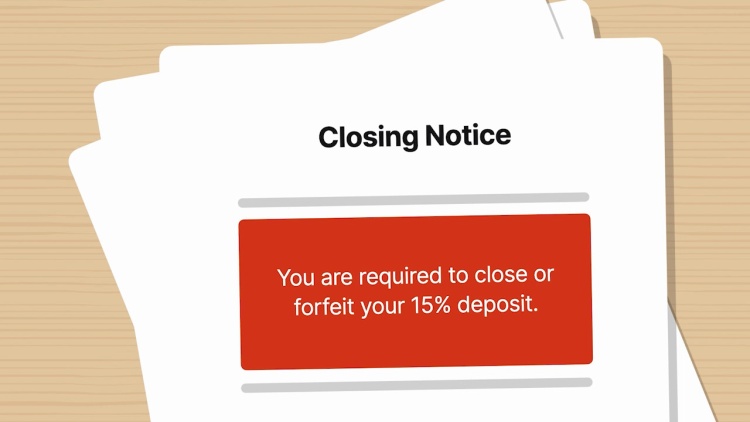Leeber v. Deltona Corp.
Maine Supreme Judicial Court
546 A.2d 452 (1988)
- Written by Megan Petersen, JD
Facts
On May 14, 1980, Leeber (plaintiff) signed an agreement to purchase a condominium unit in a development project owned in Florida by Deltona Corp. (Deltona) (defendant). The price of the unit was $150,200, with fifteen percent of that amount, $22,530, required at the time the purchase agreement was signed. The balance was to be paid by Leeber by the closing date. The closing date was to be specified by Deltona within four years from the time the purchase agreement was signed. The purchase agreement contained a liquidated damages clause providing that the $22,530 deposit was to be retained by Deltona as liquidated damages in the event of a breach by Leeber. Beginning May 1982, Deltona notified Leeber several times that he would be required to close on the condominium on certain dates or the liquidated damages deposit would be retained by Deltona. After each notice from Deltona, Leeber did not close, but instead obtained an extension. Deltona sent Leeber a final closing notice on July 8, 1982 that set a closing date of July 20, 1982. Leeber did not close on this date, and Deltona kept Leeber’s $22,530 deposit as liquidated damages. On July 31, 1982, Deltona sold the condominium to another party for $167,500. Leeber brought suit in Maine state court against Deltona seeking the return of the $22,530. The trial court held that enforcement of the liquidated damages provision in Deltona’s contract with Leeber was “unconscionable.” The trial court permitted Deltona to keep $5,704 from the deposit to cover its actual costs associated with Leeber’s breach, but awarded the remaining $15,020 to Leeber. Deltona appealed, arguing that the liquidated damages provision in the purchase agreement was valid and enforceable under Florida law.
Rule of Law
Issue
Holding and Reasoning (Clifford, J.)
What to do next…
Here's why 911,000 law students have relied on our case briefs:
- Written by law professors and practitioners, not other law students. 47,100 briefs, keyed to 997 casebooks. Top-notch customer support.
- The right amount of information, includes the facts, issues, rule of law, holding and reasoning, and any concurrences and dissents.
- Access in your classes, works on your mobile and tablet. Massive library of related video lessons and high quality multiple-choice questions.
- Easy to use, uniform format for every case brief. Written in plain English, not in legalese. Our briefs summarize and simplify; they don’t just repeat the court’s language.





